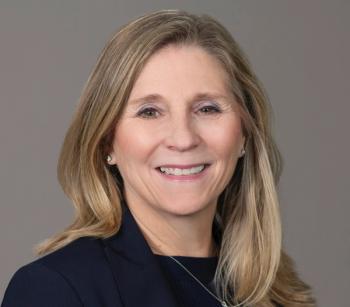
Helping nurses: Nursing leaders cite problems that aren’t being fixed | Special report
Hospitals aren’t making enough progress in improving the workplace, and it’s driving nurses from the bedside, according to the leaders of organizations representing nurses.
America’s nurses have been imploring hospital leaders for years to improve their work environment, but they aren’t seeing a lot of progress.
That’s the consensus of the leaders of four nursing organizations. In conversations with Chief Healthcare Executive® over recent weeks, these nursing leaders say nurses in hospitals need more support than they are getting and healthcare leaders need to do better.
Over the course of May, which is recognized as National Nurses Month, Chief Healthcare Executive® spoke with leaders from the American Nurses Association, the American Organization for Nursing Leadership, the American Association of Critical-Care Nurses, and the Emergency Nurses Association. They shared similar assessments of the difficulties nurses are facing.
They say that it’s time to address these problems or face the risk of more nurses moving away from the bedside, at a time when hospitals can’t afford to lose more nurses.
“We really need to start making some changes,” she says. “Because we can't just say we're working on it, right? We really need to do this.”
(This video offers perspectives from nursing leaders. The story continues below.)
Staffing problems
Most hospitals and health systems are
Many veteran nurses have left the bedside in recent years, and nurses who have been on the job for 20 years or longer find it more difficult to work 12-hours shifts, says Vicki Good, chief clinical officer of the American Association of Critical-Care Nurses.
“They're leaving the bedside, you know,” Good says. “And nursing is an incredibly physically demanding job, and especially critical care nursing. If you think about the patients that they're taking care of and in the emergency department as well, because you’ve got patients that are unresponsive, that you're having to lift and pull and all those kinds of things.”
It’s not just experienced nurses worn down after years on the job that are looking for career changes. Some hospitals are struggling to keep younger nurses, says Ryan Oglesby, president of the Emergency Nurses Association.
“We're seeing nurses with less than five years experience who are leaving the bedside and going to other areas of practice,” he says. “Again, it's just been a challenge in keeping even new nurses at the bedside with the challenge of what's happening and what's going on in our emergency departments.”
Nursing leaders agree that hospitals are losing a lot of mid-career nurses. Many hospitals working in hospitals are nurses with decades of experience or newer nurses with only a couple of years on the job.
And the lack of mid-career nurses means younger nurses have fewer seasoned colleagues to serve as mentors and guide them in their early years, which can also impact retention.
Oglesby says he’s seeing more younger nurses working in emergency medicine, including some who have just recently graduated.
“When I started out as an emergency nurse, you couldn't go to the emergency department as a new grad,” he says. “You had to have some experience outside of the ED …. Certainly in the last couple decades, we have seen a lot of new graduate nurses coming into the emergency department.”
Nursing leaders overwhelmingly agreed that hospitals will be able to retain workers at all career stages with more flexible scheduling options. More options for shorter shifts could be especially helpful in keeping nurses with small children or more seasoned nurses who struggle with 12-hour shifts.
Drained by documentation
In addition to the crush of staffing, nurses are spending a great deal of time on documentation, which siphons joy from the job and is a major contributor to burnout.
Good says some nurses are spending more time updating patient records than they are actually caring for patients at the bedside. And that’s damaging to their morale.
“Nurses spend a tremendous amount of time in documentation,” Good says. “You know, the statistics are unreal. I mean, it's sometimes 60, 70% of their day in the medical record just dealing with the chart.”
The increasing spread of digital tools powered by artificial intelligence is a promising development to ease those documentation demands, Good says.
Claire Zangerle, CEO of the American Organization for Nursing Leadership, said those tools are helping some nurses, but would like to see more widespread use of the technology.
“They're helping us reduce workload, but it's not happening as fast as we'd like it to happen,” she says. “So the workload is tough.”
“Nurses are just bogged down with administrative tasks,” Zangerle continues. “They're spending a higher percentage of their time on administrative tasks than they are actually doing nursing practice and caring for the patient, which is why they went into the profession in the first place.”
Violence affects retention
In their conversations with Chief Healthcare Executive®, nursing leaders concurred that violence in hospitals remains a major problem, and it’s a leading factor in driving some nurses to leave health systems for different jobs.
Zangerle says there are a number of factors driving nurses from the bedside, but violence is one of the biggest problems.
“We're dealing with people who are not happy, and they take it out on caregivers,” she says. “The workplace violence has not abated like we had hoped it would, once everybody calmed down after COVID. It's gotten worse. People are unreasonably demanding, they're unreasonably rude, they assault healthcare workers.”
Nurses in emergency medicine are at the greatest risk for violence, due to the volume of patients and family members they encounter and the grave reasons those patients end up in an emergency department. And emergency nurses aren’t seeing any improvement, Oglesby says.
“If anything, it's getting worse,” he says. “I think it's getting more and more common.” Oglesby says the Emergency Nurses Association is reaching out multiple times a week to talk to nurses who have been assaulted. More than half of emergency nurses say
Violence is also happening in hospitals outside the emergency department.
“It is still a very serious problem, and it does impact all layers of health care,” Good says. “Obviously, the emergency department is more at risk because they just have a more volatile patient population … but we have seen several major incidents in the ICU setting, from mainly family, but it can be from the patient as well.”
While there is some debate about whether violence is getting worse or nurses are more apt to report it, Good says, “It's still happening at alarming rates.”
Violence in hospitals is driving some nurses away, and it’s also deterring some nurses from pursuing positions in hospitals and health systems.
“The people that are driven away have influence on those people who potentially could come into the healthcare system,” Zangerle says. “They see what they've gone through, and they're like, ‘Yeah, I don't think I want to do what they've gone through.’”
Nurses have called for federal legislation to offer more protection of healthcare workers, but nursing leaders also say hospitals need to look at their own operations to improve safety for staff and patients.
“We really do need to focus in and hone in on solutions, because that just further impacts turnover and the stress that nurses are feeling in the work environment,” Mensik Kennedy says.
“This isn't just a one-prong approach,” she adds. “It really is going to take legislation, regulation and evidence-based practice to decrease this workplace violence.”
“Burnout, anxiety, depression, are just at heightened levels,” Oglesby says. “Insecure working conditions and the risk for violence can certainly have an impact on that.”
“The other thing that we also know is that that those those insecure workplace and the risk for violence also contribute to a higher suicide rate among healthcare workers,” he says. Some nurses are struggling with substance use as they try to cope, he adds.
Nurses are also bearing the weight of not being able to provide the care to patients that they envisioned, which adds to their distress.
How hospitals can help
Health systems need to take steps to help their nurses if they want to keep the nurses they have and attract other nurses to work in their organizations.
While recognizing many hospitals are facing financial difficulties, including prospects of
“When we have better staffing, and I know that's just tough, we have some looming Medicaid cuts and uncertainties in the world,” Mensik Kennedy says. “But when we staff, that allows nurses to be able to be given the time to do surveillance right, and to be watching the environment, spending time with people.”
Hospitals also need to think about shifting resources, particularly if the emergency department is holding patients for extended periods because there are no rooms available.
Oglesby says hospitals should be “bringing in inpatient nursing staff when we are holding patients in the emergency department, caring for those patients in the emergency department that really no longer belong to the emergency department.”
Hospitals can’t ignore compensation if they’re frustrated with their retention rates, nursing leaders say.
“First and foremost, make sure that you are market competitive with your compensation,” Zangerle says. “That is table stakes. If you're not market competitive, then you don't even get to play the game.”
Hospitals also need to be talking with nurses and listening to their feedback on ways to improve the workplace.
But health systems need to make sure nurses know they aren’t just checking a box with employment surveys. Hospitals need to take at least some action to address those concerns.
“Act upon the results of the employee engagement surveys because they're telling you what they need, what they want, and why they're there, and act upon those. Have an action plan around those, because doing what your employees say they need is what's going to retain who you have, and then it's going to attract people to come to your organization,” Zangerle says.
When it comes to taking steps to bolster security and protect workers, Mensik Kennedy says hospitals can’t just hope for legislative remedies.
“Every organization and everyone listening could go back and pick one priority to work on and do it without any type of regulation,” she says. “So I'd encourage people to look at wellness and look at well-being, workplace violence in their own organizations.”
Health systems must invest in resources to help nurses with their well-being, from addressing security to also helping nurses maintain their mental health.
Hospitals also must recognize the critical role nurse managers play in work retention.
Hospitals must “help have those conversations, to be able to help inform their managers, so the managers have the tools they need to work with their staff as well, to help do what they can,” Mensik Kennedy says.
Health systems need to ensure managers aren’t tasked with supervising too many nurses, so they can check in on staff regularly and get a handle on problems and help those who are struggling.
Hospitals that have more manageable teams for their nursing leaders do better with retaining nurses, the American Organization for Nursing Leadership has found.
“That check-in is so important because it could mean the difference of somebody staying and somebody leaving,” Zangerle says.






















































































